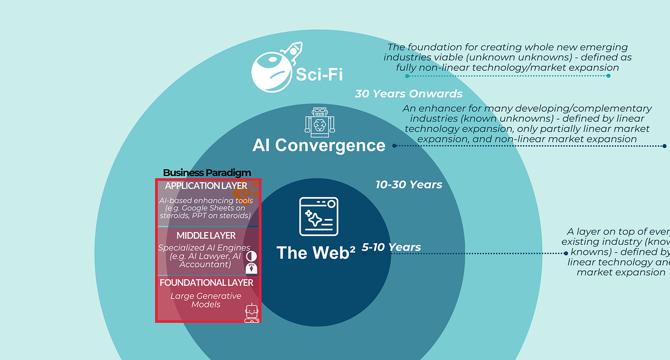Fourweekmba
9h
67

Image Credit: Fourweekmba
Emerging Trends In AI
- The current AI paradigm is based on neural-net-based, Generative AI, which will expand the existing software industry.
- Microsoft views AI enhancing sustainability, scientific breakthroughs, and responsible AI practices, including better testing and customization.
- According to NVIDIA's leadership team, generative AI and agentic AI will transform industries in 2025, driving innovation in robotics, quantum computing, and data analytics.
- a16z highlighted what to expect as key ideas for 2025, with tech innovation spanning nuclear energy for AI demands, healthcare breakthroughs like CAR-T therapy, and AI copilots for white-collar roles.
- Many discussions around AI focus on the technical aspect but miss the broader picture.
- The next cycle of development of this current AI paradigm may play out in the next 10-30 years.
- AI will transform work and daily life with more capable models, autonomous agents, and personalized companions.
- AI adoption jumped to 75% among business leaders in 2024, with 2025 set to see broader integration across work and home.
- Generative AI adoption surged across industries, forecasted to generate $1.3 trillion in revenue by 2032.
- Enterprises build AI factories to transform raw data into business intelligence for applications like supply chain optimization and market forecasting.
Read Full Article
4 Likes
For uninterrupted reading, download the app